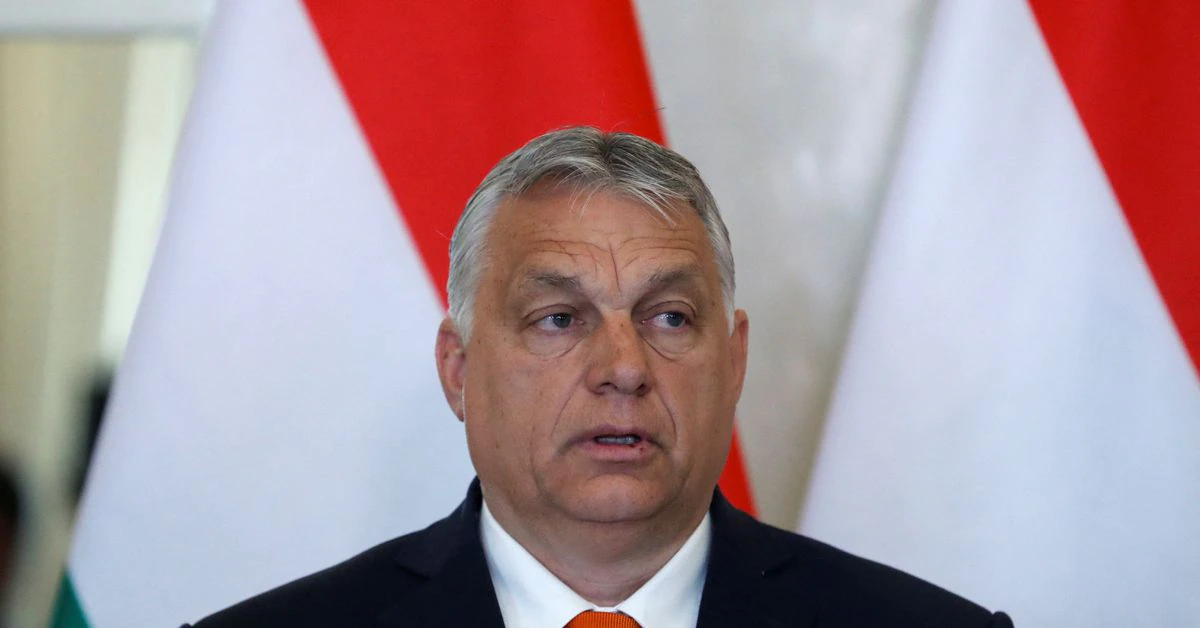
Hungarian Prime Minister Viktor Orban speaks as he and Hungarian President Janos Ader give a statement to the media after their talks at the Presidential Palace in Budapest, Hungary, April 29, 2022. REUTERS/Bernadett Szabo
Register now for FREE unlimited access to Reuters.com
BUDAPEST, May 5 (Reuters) – The European Union’s new sanctions package against Russia, including an embargo on crude oil imports, would cause more harm to Hungary than Russia, Prime Minister Viktor Orban said, news website index.hu reported on Thursday.
In a letter to European Commission President Ursula von der Leyen, Orban said the EU’s latest sanctions package risked undermining the bloc’s unity and its approval would be a historic failure.
Orban’s press chief did not immediately respond to emailed questions for comment.
Register now for FREE unlimited access to Reuters.com
The European Union’s executive on Wednesday proposed the toughest package of sanctions yet against Moscow for its war in Ukraine, but several countries worried about the impact of cutting off Russia oil imports stood in the way of agreement. read more
A handful of eastern EU countries are concerned that the halt would not allow them enough time to adapt, even though diplomats said Hungary and Slovakia would be given until the end of 2023.
Foreign Minister Peter Szijjarto said that, even with the lag, Hungary could only agree to the measures if crude oil imports from Russia via pipeline were exempt from the sanctions.
Index.hu cited Orban’s letter as saying approval of the proposed sanctions would require large-scale investment in alternative supply infrastructure and an overhaul of Hungarian oil refining capacities.
Orban also said the measures would cause a further increase in energy prices without sufficient remedial measures by the EU to mitigate the fallout.
The landlocked country – whose prime minister cultivates closer ties with the Kremlin than others in the bloc – received more than half of its crude oil and oil products imports from Russia last year, according to the International Energy Agency.
Register now for FREE unlimited access to Reuters.com
Reporting by Gergely Szakacs
Editing by Alexandra Hudson
Our Standards: The Thomson Reuters Trust Principles.
















